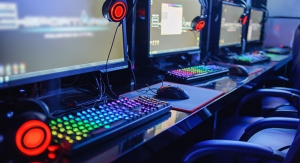By Mike Montemarano, Associate Editor12.04.20
The brain health marketplace is one of the most robust and quickly-developing nutraceutical categories. Growing evidence indicates certain nutrients and bioactive ingredients can benefit brain development in early life stages and protect cognition, memory, and executive function of people in their golden years. Additionally, a new wave of research is identifying ways to improve peak performance of people between the ages of 18 and 54, as modern living in the knowledge economy tests individuals’ capacities to handle burgeoning stress and demands for higher productivity.
Human understanding of brain physiology hardly scratches the surface of the billions of neurons and trillions of pathways fundamental to cognitive processes. Evidence does suggest, however, that when combined with healthy dietary patterns, exercise, and other health-promoting activities, a range of ingredients could potentially optimize and protect one’s faculties.
Many formulators today tend to categorize the market based on targeted applications, such as mood support, enhancing focus, reducing stress, or improving sleep patterns.
“The ingredients are then built into the formula in order to fit the health application,” said Dr. James DiNicolantonio, director of scientific affairs for AIDP and associate editor of the British Medical Journal Open Heart. In general, research and market demand are both skewing from clinical endpoints such as academic measures of intelligence toward more tangible aspects of performance, he added.
“The cognitive health market is unique in the supplement and functional foods industry,” according to Steve Fink, vice president of marketing for PLT Health Solutions. “It comprises a number of different target benefits, all of which interact and support one another—and compared to a category such as weight management for example, is among the most difficult to develop quality science to support claims.” Fink mentioned the leading parameters his company uses to evaluate ingredients and research, which include attention, language, perception, memory, reasoning, mood, learning, problem solving, and sleep.
Kristen Marshall, marketing manager at Verdure Sciences noted these subcategories “help to provide further insight to the customer as to anticipated heath attributes, while cognitive health remains quite broad. Various ingredients are under scrutiny. Particularly, this category demands a higher level of clinical substantiation and relies more heavily on clinically substantiated safety and efficacy. It’s also important that consumers are able to “see the ingredients work in similar populations and better understand what they might achieve with the same.”
Market research company SPINS shared some recent trends seen in the cognitive health market over the past few months, and signaled that the brain health marketplace is more vibrant than ever.
Overall sales growth on a monthly basis for products within the cognitive health category has increased considerably since January of 2020, according to the company’s data, from $20.7 million in January to $36.4 million in October; the previous three months of 2020 saw the sharpest increase, with monthly percentage growth of over 80% in dollar sales.
Another top-level movement within the cognitive health space is the trend toward ingredients being featured in less conventional products, with more nuanced applications. A rising tide of functional foods and beverages formulated for cognitive support is permeating the sports nutrition and weight management categories as well. Fink pointed to PLT’s Supresa, a saffron extract ingredient with high concentrations of safranal, crocin, and picrocrocin. “Unlike other products, Supresa induces a feeling of well-being and stress reduction over time, to address the source of stress-related overeating and snacking,” Fink said, mentioning a clinical trial in France which found that, among people self-identified as frequent snackers, those who supplemented with the saffron extract had three fewer snacking incidents on average compared to placebo over a period of two weeks.
“The concept is two-fold,” he said. “The first area has to do with the notion that weight loss can be a stressful time and that cognitive support can help maintain compliance with a weight management program. The second has to do with providing daily, experiential support. Successful weight management involves diet, exercise, and slow, consistent weight loss.”
Likewise, the brain makes up approximately 4% of a person’s weight, but metabolizes about 20% of caloric energy. Many supplements which have been prevalent in sports nutrition for improving energy tend to have even more notable benefits for cognition.
Nutrition21’s Chromax, for example, is a sports nutrition ingredient which, in recent years, has been shown to improve glucose metabolism in the brain among older adults. A preliminary trial found this chromium picolinate ingredient, originally intended for blood sugar management, reduced the amount of errors that a small group of treated participants made in a memory test, and increased the amount of brain activation observed through fMRI brain scans, while a placebo group remained unchanged.
While research is constantly evolving, scientists are uncovering new clinical endpoints as early research provides a sturdy foundation.
“Of particular importance is study design, and learning from each preceding clinical how to improve next,” said Marshall. “Technology and methodology continue to advance and with this comes more sophisticated research, more sensitive measures, and more data to analyze. Many products on the market tout that theirs is the best, making it very difficult for consumers to translate information. Even with all of these advancements, the industry as a whole still relies heavily on bioavailability claims as the primary source of ‘whose is best,’ which isn’t helpful and continues to muddle the category. Clinical efficacy showing the in vitro results translated to real world applications is crucial to telling the whole story. Verdure is proud to continue to be part of groundbreaking research, including the ability to explore how bioactives work at the cellular level in humans by exploring mRNA data, as well as exploring genetic variances. Longvida (curcumin), specifically, has been part of a number of incredible initiatives which have generated an immense amount of data; the trouble being that this is often difficult to discuss in 5 minutes or less.”
“At the end of the day, brand recognition can be built with products that actually work,” Marshall continued. “Challenges definitely arise though as many finished products and ingredient providers alike attempt to genericize research, broadly applying clinical efforts to different optimized curcumin extracts [for example]. When research is ‘borrowed’ from an enhanced curcumin extract to substantiate a different extract, with different technology, the industry encounters additional challenges and consumers face more confusion.”
Peak Performance
A new frontier driving innovation in cognitive support lies in the general adult population. Being able to think clearly, make decisions effectively, learn, and remember things are critical to success throughout life, and areas which many struggle with. The new target, peak performers, generally consists of knowledge workers who make up a steadily-increasing 40% of the U.S. population.
“Brain health in general is starting to become more important,” DiNicolantonio said. “Take the gaming industry, for example, where reaction time, performance speed, and mental stamina are extremely important. Clinical endpoints have started shifting from academic measures to more real-life performance measures.”
The shift toward immediate performance results appears to be driven more sharply by those in early and middle adulthood. “The consumer wants to know what an ingredient is going to do for them in a way related to their own performance,” DiNicolantonio said. “Are you able to complete tasks quicker? Is your mental stamina increased? Will you get a higher score on a mental exercise?”
DiNicolantonio believes that demand for products that target end users such as college students, working adults, gamers, and others in adulthood is a gap that remains to be met. Many peak performers reportedly still rely on many decades-old energy ingredients that don’t contribute to higher-order cognition.
Speaking of gaming, James Komorowski, chief science officer, Nutrition21, discussed a patented product his company developed recently called nooLVL, a non-stimulant ingredient comprised of two components: bonded arginine silicate and inositol. The formula was clinically substantiated using a study design in which all participants were themselves competitive gamers, subject to a series of tests on processing speed, energy, and focus following both supplementation with nooLVL and a full hour of gaming. With gamers in need of nutrition to support eye health, mental endurance, and improved general cognition, the brain health category overall seems a smart fit. An estimated 2 billion video game players make up an industry likely to exceed $200 billion in the coming years.
“What makes it an unparalleled standout among performance ingredients is that it has actually been studied in gamers and shown not only to work fast but also continue to provide brain benefits well after intake,” Komorowski said of nooLVL. “In fact, this non-stimulant ingredient works in 15 minutes and delivers increased energy safely, without negatively affecting heart rate or blood pressure.”
In addition to energy, the ingredient was shown through a number of tests to significantly improve cognitive flexibility by 41%, with a 66% reduction in errors on cognitive tests, and attention and reaction time improvements still holding significance a full 60 minutes after intake.
Peak performance, as a trend driver, is a reaction to the increasingly demanding lifestyles associated with the knowledge economy. According to market research company FMCG Gurus, more than four in 10 consumers do not get more than six hours of sleep in an average night; and in the era of COVID-19, working from home makes it more difficult for consumers to turn off from business.
“The concept of nootropics has become an increasingly popular market segment over the last several years, led primarily by younger consumers in their 20s and 30s. Competitive gaming in the e-sports category and virtual learning at universities during the pandemic have played important roles in how consumers have adopted brain health supplements,” said Sébastien Bornet, vice president of global sales and marketing at Horphag Research.
Today’s research into cognitive performance reflects broad acceptance of the nuance that optimizing cognitive performance requires. Many studies incorporate a multifaceted approach between overall diet, proper supplementation to fill in nutrient gaps, and exercise. It’s likely that an experimental group and a placebo group will each be exposed to a range of healthy interventions in today’s clinical trials on cognition.
A recent publication on 148 active-duty Air Force airmen, for example, embodied this research model in a placebo-controlled, 12-week study in which some of the airmen received a nutritional beverage containing protein, DHA, lutein, phospholipids, vitamin D, B vitamins, and a muscle-promoting compound called HMB. In the study, published in the journal Scientific Reports in October, a battery of tests revealed that the airmen, whose active duties entail a great deal of physiological and psychological stressors, were able to improve strength, endurance, mobility, and stability. Also, subjects saw increases in several measures of cognitive function, including episodic memory, information processing speed, and fluid intelligence, according to a battery of cognitive tests and training regimens.
Academics remain wary of a number of synthetic or semi-synthetic products being sold as brain health supplements, or sometimes, even as “smart drugs.” While common dietary ingredients aren’t of much concern, heavy scrutiny lies on synthetics either being sold outright or appearing in products as adulterants.
For these reasons, “the industry is responding to these challenges by focusing on natural ingredients with proven safety, and giving increased emphasis on R&D and clinical studies,” said Dr. Aditya Kulkarni, manager of overseas business development for Pharma Foods International. “Customer-focused companies are well aware of the challenges faced by regulatory scrutiny, and take all possible actions to maintain consumer trust, such as having adequate scientific backing for all functionality and safety of a product, being clear about claims, focusing on safe manufacturing processes, and using natural ingredients.”
Luckily for companies taking a safe approach with well-known natural ingredients, consumers are becoming more receptive overall to communications about the validity of products, Bornet said. “As an ingredient supplier, it’s our responsibility to provide easily accessible information about our branded ingredients and educate target markets on new research regarding their benefits.” he said.
Bob Capelli, CEO of BGG Americas and Algae Health Sciences, shared a similar sentiment. “We’ve developed a list of close to 300 structure/function claims that we submitted to the U.S. FDA for AstaZine (astaxanthin) without objection,” he said. “But we were reasonable about the brain health claims and didn’t push the envelope too much. We have 30 well-documented claims in the brain health area that won’t raise the FDA’s or FTC’s eyebrows.”
Fink shared the operating plan by which PLT Health Solutions navigated the waters of cognitive health claims, which he described as a first-of-its kind dossier.
“The dossier is a novel multidisciplinary, risk-informed approach to developing and using claims in the marketing of a natural ingredient,” Fink said. “For the Synapsa claims dossier, PLT engaged the services of a third-party company that is focused on claims substantiation and scientific communications, to provide an impartial review of the validity of the science supporting Synapsa claims. The publication includes a comprehensive list of suggested claims and a legal executive summary, and in-depth reviews of the substantiation of claims. In the case of Synapsa, these include ‘chronic’ claims that cover long-term use of the ingredient, ‘acute’ claims that are based around short-term experiential use of the ingredient, and general claims in the area of cognitive health. The Comprehensive List of Claims in the new dossier includes in-depth reviews on supporting 19 different potential claims for consumer products that contain or feature Synapsa. Claims reviews are an integral part of managing the regulatory issues associated with efficacy claims for ingredients and formulated consumer products.”
Lasting Protection
Uncovering associations between nutrition and the risk of mild cognitive impairment (MCI), or conditions like Alzheimer’s and dementia, continues to be a stalwart pursuit for researchers. A growing body of large-scale meta-analyses continue highlighting the potential role that several nutrients and bioactive compounds such as flavonoids, carotenoids, and specialized extracts might play in protecting the brain.
Beyond single ingredients, certain dietary patterns and the outcomes associated with them are also a key focus in the nutraceuticals industry for healthy cognitive aging. Beyond more generalized approaches, such as the Mediterranean diet, it’s been established that certain dietary patterns can prevent cognitive impairment over the long haul. MCI affects 15-20% of the 65+ population, and it is a top warning sign of increased risk for developing dementia and Alzheimer’s disease.
A new clinical trial called BENEFIC (Brain Energy, Functional Imaging and Cognition), for example, focused on the ketogenic diet and found that shifting the body’s metabolism to prioritize ketones over glucose could be of some benefit. Specifically, researchers found that a ketogenic drink (BrainXpert Energy Complex) administered to a randomized group from a pool of people aged 65+, who are at risk for age-related cognitive impairment, significantly improved performance in the Trail Making test, the Stroop Color Word Interference Test, and the Verbal Fluency Tests, each of which are leading measures of executive function, compared to placebo. Other improvements were seen in the areas of memory, word recall, and multi-tasking, which were significantly better than the placebo group.
The gut-brain axis is another topical concept in cognitive support research, with a rapid succession of probiotics and prebiotic fibers being launched to target enzyme, hormone, and neurotransmitters sourced in the gut by altering a person’s microbiome. While it’s been known for some time that various mechanisms in the gut were tied to neurochemicals, more recently, scientists began putting certain fibers or bacterial strains to the test. A study on thousands of participants in the Korean National Health and Examination Survey (KNHANES), for example, found that high consumption of seaweed and mushroom fibers were associated with reduced instances of clinical depression and self-reported depressive symptoms.
Pandemic Priorities
COVID-19 has shifted priorities for what types of brain support innovations will take place in the foreseeable future, as mood, sleep, and cognitive support categories have observably overlapped, perhaps for the long-term.
According to the National Health Interview Survey (NHIS), which was published based on results recorded prior to the pandemic’s outbreak, 30-40% of dietary supplement users bought supplements to address concerns about anxiety and stress. Further feedback has shown that pressure is mounting from Americans for more immediate cognitive support solutions in the domains of mood and sleep; in a survey conducted by Sleep Standards, 50.2% of Americans stated the COVID-19 pandemic has affected their sleep patterns negatively. Meanwhile, the American Psychological Association found that almost eight in 10 Americans consider COVID-19 to be a significant source of stress.
The exacerbated mood, sleep, and stress issues associated with COVID-19 appear to be irrespective of demographics, and are felt more widely than any other cognitive health issue at this time, according to Marshall.
Fink reported that PLT Health Solutions has seen unprecedented demand for its ingredient Zembrin, an extract of the Sceletium tortosum plant which has been shown in clinical studies to inhibit both PDE4 and 5-HT reuptake, working along the same neurological pathways that common anxiolytic drugs do.
“Zembrin is marketed to nutraceutical and functional food and beverage producers who are interested in incorporating this innovative, evidence-based ingredient in products that experientially support calmness, enhanced mood, and improved cognitive function […] Overall, seven out of 10 of our customers have recently expressed interest in adding some type of stress or cognitive support in formulations across a broad range of health support categories.”
Long-term stressors are understood to have lasting impacts on one’s ability to think clearly, stay focused, and get through the day with the brain working optimally. Bornet pointed to one review from Penn Medicine Princeton Medical Center which discussed the phenomenon of brain fog in relation to times of prolonged negative feelings and stress. In addition, an ongoing survey supports the theory that there is widespread COVID-19-induced brain fog occurring amid lockdowns. Another study Bornet pointed to found that memory problems are manifesting at higher rates among elderly people as a result of isolation and limitations on social interaction.
Rising mental health issues have led consumers to become more conscious about their cognitive health, showing further signs that demand for solutions to stress, sleep, and more long-term cognitive issues are top of mind. By July, 52% of those surveyed by FMCG Gurus said they were more conscious about their cognitive health as a result of COVID-19, compared to just 39% in April. “At the same time, consumers are recognizing that mental well-being is something that shapes overall health and something that can directly impact on the immune system,” the company said.
The leading cognitive support issues that consumers reported to FMCG Gurus were feelings of fatigue (57%), stress (56%), difficulty sleeping (53%), lack of concentration (49%), and general forgetfulness (48%). Some long-term complications also included periods of memory loss (42%), feeling confused (39%), difficulty understanding things (37%), and a loss of words (35%).
Bare Essentials
As more research comes to light highlighting the mechanisms by which essential nutrients impact cognitive health, it is all the more reason for formulators to refine those nutrients, tailoring them to be a cut above the competition for specific applications.
Magnesium, for example, is commercially available in many forms—the main three are magnesium citrate, chloride, and oxide. AIDP offers a proprietary form of magnesium L-threonate, marketed as Magtein, which is evidenced to cross the blood-brain-barrier more effectively due to its composition.
The family of B vitamins, particularly B6, B9, and B12, are go-to nutrients in many brain health formulations. While deficiency in these vitamins is rare, a great deal of evidence supports structure/function claims related to the regulation of brain signaling, providing energy toward the synthesis of new brain cells. More preliminary evidence is mounting to suggest the other B vitamins play critical roles in neuroprotection as well. Of all these vitamins, evidence suggests that breakthroughs in the B family are far from over. A meta-analysis published by researchers at Northumbria University indicated, “Human research clearly shows that both a significant proportion of the populations of developed countries suffer from the deficiencies or insufficiencies in one or more of this group of vitamins, and that, in absence of an optimal diet, administration of the entire B-vitamin group, rather than a small sub-set, at doses greatly in excess of the current governmental recommendations, would be a rational approach for preserving brain health.”
One of the biggest milestones for choline this year came with the U.S. Dietary Guidelines Advisory Committee’s (DGAC) recommendations to increase the daily recommended intake of this essential nutrient, especially among pregnant women and adolescents.
A growing body of evidence has confirmed choline plays a vital role in the development of brain areas involved in cognition, learning, and memory, with long-lasting consequences. The acknowledgement of widespread deficiency will play a role in choline’s prioritization in the developmental nutrition space. In addition to its role in maintaining the structural integrity of brain cells later in life, research has revealed that it influences stem cell activity during fetal development, altering the structure and function of brain and spinal cords, influencing the risk for cognitive impairments and lifelong memory function. While it is produced endogenously, it is impossible to synthesize enough without dietary choline intake as well.
While severe deficiencies are rare, it’s clear that the lion’s share of Americans are still not receiving the recommended daily amount of vitamin E either, according to multiple studies, including the National Health and Nutrition Examination Survey (NHANES). Large-scale studies have identified associations between higher intake of vitamin E and the likelihood of developing cognitive impairment later in life. Vitamin E’s primary role in cognitive health appears to be due to its ability as an antioxidant to scavenge free radicals.
Specialty Compounds
A range of amino acids and other chemicals found within the body, some of which are more well-known and well-studied than others, also hold a significant place in the cognitive support market.
Studies on the neurotransmitter GABA, which is commonly featured as a dietary supplement ingredient by companies such as PharmaGABA for example, show promise for cognitive support solutions. One three-month clinical trial conducted on 120 healthy people aged 40 and older found that daily supplementation with GABA significantly improved cognitive function in a dose-dependent manner compared to placebo, particularly in assessments of memory and spatial cognition. At a higher dosage, additional significant benefits were observed in assessments of working memory and sustained attention. GABA is the primary inhibitory neurotransmitter, often dubbed the “brakes of the brain,” and is believed to function broadly for relaxation, sleep, and feelings of anxiety or stress.
Other amino acids, such as creatine, leucine, and BCAAs are also believed to be vital to brain function, as transporters or precursors of several neurotransmitters. Preliminary evidence suggests certain amino acids may improve short-term memory and focus when administered as supplement ingredients.
Omega-3s
The omega-3 fatty acids EPA and DHA have long been heralded, among a myriad of functions, for their critical role in brain development, cardiovascular health, and beyond. Several new developments in omega-3s, however, point to the protective role they may have over neurological health throughout life, though the evidence that they mitigate risk against diseases such as Alzheimer’s or dementia appears to be mixed.
A research paper published by the Lancet this year found that the gene associated with Alzheimer’s disease may reduce the bioavailability of omega-3s, providing fuel for efforts to understand both the causes and effects of deficiency.
Another intriguing study published this year in Neurology found that omega-3s may counteract the effects of air pollution on the brain. In a clinical trial consisting of 1,315 women with an average age of 70 who were known to live in areas affected by heavy air pollution, daily omega-3 intake from fish combined with blood concentrations of omega-3s were inversely associated with risk of developing dementia.
Botanically Bolstered
Several compounds found within certain plant species have been discovered to have various beneficial actions on brain health. Whether it be through supporting the regulation of specific neurotransmitters, preventing oxidation from happening throughout the entire body, or even improving blood oxygenation levels in a way that crosses the blood-brain barrier, there are a range of benefits for formulators to pick and choose from.
Algal astaxanthin, which contains a potent blend of unique carotenoids, is considered a rising star ingredient in the brain health marketplace today. This ingredient has seen a rapid succession of clinical trials establishing positive outcomes with issues at all stages of life. Capelli discussed two clinical trials from 2019 which have propelled the potent carotenoid into a strong position.
“AlgaeHealth/BGG’s AstaZine Natural Astaxanthin was the subject of two brain health clinical trials published in 2019 that have kindled a high level of interest from supplement brands around the world,” he said. “BGG Japan published a study on older subjects experiencing mild forgetfulness showing that AstaZine improves cognitive function and reduces age-related forgetfulness; and BGG Americas published a completely different type of brain health clinical trial. We showed that AstaZine can reduce feelings of depression by 57% while at the same time decreasing mental fatigue by 36%, and improving overall global psychological ‘mood state’ by 11%. The impact of this one-two punch on two key brain health concerns prevalent in both the elderly and younger populations has been extremely well-received.”
Another phytochemical that saw a great deal of traction this year was resveratrol, which was the subject of a large scale clinical trial called RESHAW (Resveratrol Supporting Healthy Aging in Women). The cohort study led to a robust series of publications with positive findings on brain health in postmenopausal women.
The two-year, placebo-controlled clinical trial found that among a population of 125 postmenopausal women, those who took a resveratrol supplement saw an overall improvement of 33% across a wide battery of cognitive tests, and 76% improvement in verbal memory compared to placebo. These results make this compound, which is found naturally in berries, wine, and nuts, one to watch out for specifically for the women’s healthy aging market (though clinical trials evaluating resveratrol’s impact on other demographics are expected). The significant improvements to cerebrovascular circulation and bone mineral density to boot are expected to further appeal to those seeking a wide range of functional benefits in their golden years.
Pycnogenol, a proprietary extract with potent antioxidant properties sourced from the bark of French maritime pine trees, has been the subject of several studies over the past few years, with breakthroughs supporting its use as a cognitive support ingredient. One study from two years ago found that daily supplementation with the ingredient reduced symptoms of mild cognitive impairment by 18% as evaluated by Mini-Mental State Examination (MMSE) scores in a group of 87 men between the ages of 55 and 70. Additional trials on Pycnogenol suggest that it improves cognitive function in younger demographics, as well. A placebo-controlled clinical trial published in 2015 found that, when combined with a health plan including regular sleep, balanced meals, and exercise, 12 weeks of daily supplementation resulted in significant improvements to mood, mental performance, sustained attention, and oxidative stress, compared with a placebo group which underwent the same health plan.
Further, a 2011 study found the ingredient improved each of these cognitive parameters, and improved test scores, in a group of 55 college students who either underwent thrice daily supplementation of 100 mg of the ingredient or a placebo.
SPINS said to pay close attention to Bacopa monnieri, a potent antioxidant herb containing a wide range of bioactive compounds believed to influence higher order cognitive functions such as learning and memory; phosphatidyl serine, a plant-sourced phospholipid found abundantly in the brain; and Lion’s Mane mushroom, which is evidenced to protect against feelings of anxiousness and depression symptoms as well as age-related cognitive impairment.
“Bacopa monnieri and phosphatidyl serine have both grown considerably in the last 52 weeks in terms of absolute dollar growth and dollar percentage change,” the company said. While capsules hold the highest share for both of these ingredients, the delivery methods driving their growth are beginning to diversify with the growing popularity of Bacopa sprays, and phosphatidyl serine being featured in eye-catching gummies and powders.
“Nootropics are on the rise as mental and emotional well-being expands into areas for focus, memory, and learning for at-home students and employees of all ages,” said Marshall, from Verdure Sciences. “Adaptable products and functional support are paramount to successful brands and product extensions. Verdure has seen increased interest in the standardized Bacopa monnieri extract, Bacognize, as it offers nootropic support with clinical substantiation for memory, mood, focus, and learning, as well as pending research for support in healthy sleep cycles.”
Further, Bacopa has seen success in sports nutrition, and in the e-sports market, with clinical trials supporting its use as a clean-label solution for mental acuity, focus, and freedom from distractibility, all of which are hot topics in terms of performance-based benefits.
Another ancient herb leading in the cognitive health space, for which Verdure touts clinical cognitive benefits, is turmeric, particularly its extract curcumin, which has been shown to carry out potent antioxidant and anti-inflammatory properties that impact higher order thinking. Longvida is a curcumin extract specifically optimized for cognitive benefits that speak particularly to the aforementioned needs exacerbated by the pandemic: mood, memory, and fatigue. A clinical trial saw improvements in these domains among a cohort of 80 participants between the ages of 50 and 80, which first became significant at 4 weeks of daily supplementation.
With major bioavailability challenges, formulators must innovate through technological means to ensure efficacy; Verdure uses a tri-lipid matrix that ensures curcumin survives digestion and its compounds circulate without being destroyed. “Especially in an aging population, this selective enhanced bioavailability and proven efficacy allows for the bountiful benefits of curcumin to be harnessed without adversely impacting other medications or ingredients this population might be taking,” Marshall said.
In another nutritional intervention revelation, Verdure has been involved with “potentially game-changing” research demonstrating that its extract can make it possible to provide a non-invasive image of amyloid-beta content in the eye by crossing the blood-brain barrier, allowing for imaging devices to visualize the peptide associated with Alzheimer’s disease more than 20 years before the onset of symptoms. “The profound implications of a low-cost, non-invasive solution are astounding,” Marshall said.
Mushrooms traditionally used for cognitive support, such as Lion’s Mane, are also experiencing updrafts, as innovations continue to drive their growth, SPINS said. More often than before, cognitive support mushroom ingredients are being paired with other mushrooms known for adaptogenic effects, and are increasingly being featured in beverages such as hot chocolate or coffee with the intuition being that the added effects of natural caffeine work synergistically with cognitive support ingredients on a general level.
There are dozens if not hundreds of compounds and ingredients comprising the exhaustive list of supplements shown to support a variety of cognitive health benefits. Still, there’s much more to learn. The market of cognitive support products has many challenges to overcome due to limited scientific understanding about the interplay between nutrient profiles and the brain, however, research and development suggests industry is following a path of scientific rigor and high efficacy standards. Trust from consumers and regulatory agencies will be vital.
Overall, consumer interest in products that protect and preserve the development and aging of the brain, or those that offer a competitive edge during the prime of life, appears to be a perennial driver for personalized nutrition.
Human understanding of brain physiology hardly scratches the surface of the billions of neurons and trillions of pathways fundamental to cognitive processes. Evidence does suggest, however, that when combined with healthy dietary patterns, exercise, and other health-promoting activities, a range of ingredients could potentially optimize and protect one’s faculties.
Many formulators today tend to categorize the market based on targeted applications, such as mood support, enhancing focus, reducing stress, or improving sleep patterns.
“The ingredients are then built into the formula in order to fit the health application,” said Dr. James DiNicolantonio, director of scientific affairs for AIDP and associate editor of the British Medical Journal Open Heart. In general, research and market demand are both skewing from clinical endpoints such as academic measures of intelligence toward more tangible aspects of performance, he added.
“The cognitive health market is unique in the supplement and functional foods industry,” according to Steve Fink, vice president of marketing for PLT Health Solutions. “It comprises a number of different target benefits, all of which interact and support one another—and compared to a category such as weight management for example, is among the most difficult to develop quality science to support claims.” Fink mentioned the leading parameters his company uses to evaluate ingredients and research, which include attention, language, perception, memory, reasoning, mood, learning, problem solving, and sleep.
Kristen Marshall, marketing manager at Verdure Sciences noted these subcategories “help to provide further insight to the customer as to anticipated heath attributes, while cognitive health remains quite broad. Various ingredients are under scrutiny. Particularly, this category demands a higher level of clinical substantiation and relies more heavily on clinically substantiated safety and efficacy. It’s also important that consumers are able to “see the ingredients work in similar populations and better understand what they might achieve with the same.”
Market research company SPINS shared some recent trends seen in the cognitive health market over the past few months, and signaled that the brain health marketplace is more vibrant than ever.
Overall sales growth on a monthly basis for products within the cognitive health category has increased considerably since January of 2020, according to the company’s data, from $20.7 million in January to $36.4 million in October; the previous three months of 2020 saw the sharpest increase, with monthly percentage growth of over 80% in dollar sales.
Another top-level movement within the cognitive health space is the trend toward ingredients being featured in less conventional products, with more nuanced applications. A rising tide of functional foods and beverages formulated for cognitive support is permeating the sports nutrition and weight management categories as well. Fink pointed to PLT’s Supresa, a saffron extract ingredient with high concentrations of safranal, crocin, and picrocrocin. “Unlike other products, Supresa induces a feeling of well-being and stress reduction over time, to address the source of stress-related overeating and snacking,” Fink said, mentioning a clinical trial in France which found that, among people self-identified as frequent snackers, those who supplemented with the saffron extract had three fewer snacking incidents on average compared to placebo over a period of two weeks.
“The concept is two-fold,” he said. “The first area has to do with the notion that weight loss can be a stressful time and that cognitive support can help maintain compliance with a weight management program. The second has to do with providing daily, experiential support. Successful weight management involves diet, exercise, and slow, consistent weight loss.”
Likewise, the brain makes up approximately 4% of a person’s weight, but metabolizes about 20% of caloric energy. Many supplements which have been prevalent in sports nutrition for improving energy tend to have even more notable benefits for cognition.
Nutrition21’s Chromax, for example, is a sports nutrition ingredient which, in recent years, has been shown to improve glucose metabolism in the brain among older adults. A preliminary trial found this chromium picolinate ingredient, originally intended for blood sugar management, reduced the amount of errors that a small group of treated participants made in a memory test, and increased the amount of brain activation observed through fMRI brain scans, while a placebo group remained unchanged.
While research is constantly evolving, scientists are uncovering new clinical endpoints as early research provides a sturdy foundation.
“Of particular importance is study design, and learning from each preceding clinical how to improve next,” said Marshall. “Technology and methodology continue to advance and with this comes more sophisticated research, more sensitive measures, and more data to analyze. Many products on the market tout that theirs is the best, making it very difficult for consumers to translate information. Even with all of these advancements, the industry as a whole still relies heavily on bioavailability claims as the primary source of ‘whose is best,’ which isn’t helpful and continues to muddle the category. Clinical efficacy showing the in vitro results translated to real world applications is crucial to telling the whole story. Verdure is proud to continue to be part of groundbreaking research, including the ability to explore how bioactives work at the cellular level in humans by exploring mRNA data, as well as exploring genetic variances. Longvida (curcumin), specifically, has been part of a number of incredible initiatives which have generated an immense amount of data; the trouble being that this is often difficult to discuss in 5 minutes or less.”
“At the end of the day, brand recognition can be built with products that actually work,” Marshall continued. “Challenges definitely arise though as many finished products and ingredient providers alike attempt to genericize research, broadly applying clinical efforts to different optimized curcumin extracts [for example]. When research is ‘borrowed’ from an enhanced curcumin extract to substantiate a different extract, with different technology, the industry encounters additional challenges and consumers face more confusion.”
Peak Performance
A new frontier driving innovation in cognitive support lies in the general adult population. Being able to think clearly, make decisions effectively, learn, and remember things are critical to success throughout life, and areas which many struggle with. The new target, peak performers, generally consists of knowledge workers who make up a steadily-increasing 40% of the U.S. population.
“Brain health in general is starting to become more important,” DiNicolantonio said. “Take the gaming industry, for example, where reaction time, performance speed, and mental stamina are extremely important. Clinical endpoints have started shifting from academic measures to more real-life performance measures.”
The shift toward immediate performance results appears to be driven more sharply by those in early and middle adulthood. “The consumer wants to know what an ingredient is going to do for them in a way related to their own performance,” DiNicolantonio said. “Are you able to complete tasks quicker? Is your mental stamina increased? Will you get a higher score on a mental exercise?”
DiNicolantonio believes that demand for products that target end users such as college students, working adults, gamers, and others in adulthood is a gap that remains to be met. Many peak performers reportedly still rely on many decades-old energy ingredients that don’t contribute to higher-order cognition.
Speaking of gaming, James Komorowski, chief science officer, Nutrition21, discussed a patented product his company developed recently called nooLVL, a non-stimulant ingredient comprised of two components: bonded arginine silicate and inositol. The formula was clinically substantiated using a study design in which all participants were themselves competitive gamers, subject to a series of tests on processing speed, energy, and focus following both supplementation with nooLVL and a full hour of gaming. With gamers in need of nutrition to support eye health, mental endurance, and improved general cognition, the brain health category overall seems a smart fit. An estimated 2 billion video game players make up an industry likely to exceed $200 billion in the coming years.
“What makes it an unparalleled standout among performance ingredients is that it has actually been studied in gamers and shown not only to work fast but also continue to provide brain benefits well after intake,” Komorowski said of nooLVL. “In fact, this non-stimulant ingredient works in 15 minutes and delivers increased energy safely, without negatively affecting heart rate or blood pressure.”
In addition to energy, the ingredient was shown through a number of tests to significantly improve cognitive flexibility by 41%, with a 66% reduction in errors on cognitive tests, and attention and reaction time improvements still holding significance a full 60 minutes after intake.
Peak performance, as a trend driver, is a reaction to the increasingly demanding lifestyles associated with the knowledge economy. According to market research company FMCG Gurus, more than four in 10 consumers do not get more than six hours of sleep in an average night; and in the era of COVID-19, working from home makes it more difficult for consumers to turn off from business.
“The concept of nootropics has become an increasingly popular market segment over the last several years, led primarily by younger consumers in their 20s and 30s. Competitive gaming in the e-sports category and virtual learning at universities during the pandemic have played important roles in how consumers have adopted brain health supplements,” said Sébastien Bornet, vice president of global sales and marketing at Horphag Research.
Today’s research into cognitive performance reflects broad acceptance of the nuance that optimizing cognitive performance requires. Many studies incorporate a multifaceted approach between overall diet, proper supplementation to fill in nutrient gaps, and exercise. It’s likely that an experimental group and a placebo group will each be exposed to a range of healthy interventions in today’s clinical trials on cognition.
A recent publication on 148 active-duty Air Force airmen, for example, embodied this research model in a placebo-controlled, 12-week study in which some of the airmen received a nutritional beverage containing protein, DHA, lutein, phospholipids, vitamin D, B vitamins, and a muscle-promoting compound called HMB. In the study, published in the journal Scientific Reports in October, a battery of tests revealed that the airmen, whose active duties entail a great deal of physiological and psychological stressors, were able to improve strength, endurance, mobility, and stability. Also, subjects saw increases in several measures of cognitive function, including episodic memory, information processing speed, and fluid intelligence, according to a battery of cognitive tests and training regimens.
Academics remain wary of a number of synthetic or semi-synthetic products being sold as brain health supplements, or sometimes, even as “smart drugs.” While common dietary ingredients aren’t of much concern, heavy scrutiny lies on synthetics either being sold outright or appearing in products as adulterants.
For these reasons, “the industry is responding to these challenges by focusing on natural ingredients with proven safety, and giving increased emphasis on R&D and clinical studies,” said Dr. Aditya Kulkarni, manager of overseas business development for Pharma Foods International. “Customer-focused companies are well aware of the challenges faced by regulatory scrutiny, and take all possible actions to maintain consumer trust, such as having adequate scientific backing for all functionality and safety of a product, being clear about claims, focusing on safe manufacturing processes, and using natural ingredients.”
Luckily for companies taking a safe approach with well-known natural ingredients, consumers are becoming more receptive overall to communications about the validity of products, Bornet said. “As an ingredient supplier, it’s our responsibility to provide easily accessible information about our branded ingredients and educate target markets on new research regarding their benefits.” he said.
Bob Capelli, CEO of BGG Americas and Algae Health Sciences, shared a similar sentiment. “We’ve developed a list of close to 300 structure/function claims that we submitted to the U.S. FDA for AstaZine (astaxanthin) without objection,” he said. “But we were reasonable about the brain health claims and didn’t push the envelope too much. We have 30 well-documented claims in the brain health area that won’t raise the FDA’s or FTC’s eyebrows.”
Fink shared the operating plan by which PLT Health Solutions navigated the waters of cognitive health claims, which he described as a first-of-its kind dossier.
“The dossier is a novel multidisciplinary, risk-informed approach to developing and using claims in the marketing of a natural ingredient,” Fink said. “For the Synapsa claims dossier, PLT engaged the services of a third-party company that is focused on claims substantiation and scientific communications, to provide an impartial review of the validity of the science supporting Synapsa claims. The publication includes a comprehensive list of suggested claims and a legal executive summary, and in-depth reviews of the substantiation of claims. In the case of Synapsa, these include ‘chronic’ claims that cover long-term use of the ingredient, ‘acute’ claims that are based around short-term experiential use of the ingredient, and general claims in the area of cognitive health. The Comprehensive List of Claims in the new dossier includes in-depth reviews on supporting 19 different potential claims for consumer products that contain or feature Synapsa. Claims reviews are an integral part of managing the regulatory issues associated with efficacy claims for ingredients and formulated consumer products.”
Lasting Protection
Uncovering associations between nutrition and the risk of mild cognitive impairment (MCI), or conditions like Alzheimer’s and dementia, continues to be a stalwart pursuit for researchers. A growing body of large-scale meta-analyses continue highlighting the potential role that several nutrients and bioactive compounds such as flavonoids, carotenoids, and specialized extracts might play in protecting the brain.
Beyond single ingredients, certain dietary patterns and the outcomes associated with them are also a key focus in the nutraceuticals industry for healthy cognitive aging. Beyond more generalized approaches, such as the Mediterranean diet, it’s been established that certain dietary patterns can prevent cognitive impairment over the long haul. MCI affects 15-20% of the 65+ population, and it is a top warning sign of increased risk for developing dementia and Alzheimer’s disease.
A new clinical trial called BENEFIC (Brain Energy, Functional Imaging and Cognition), for example, focused on the ketogenic diet and found that shifting the body’s metabolism to prioritize ketones over glucose could be of some benefit. Specifically, researchers found that a ketogenic drink (BrainXpert Energy Complex) administered to a randomized group from a pool of people aged 65+, who are at risk for age-related cognitive impairment, significantly improved performance in the Trail Making test, the Stroop Color Word Interference Test, and the Verbal Fluency Tests, each of which are leading measures of executive function, compared to placebo. Other improvements were seen in the areas of memory, word recall, and multi-tasking, which were significantly better than the placebo group.
The gut-brain axis is another topical concept in cognitive support research, with a rapid succession of probiotics and prebiotic fibers being launched to target enzyme, hormone, and neurotransmitters sourced in the gut by altering a person’s microbiome. While it’s been known for some time that various mechanisms in the gut were tied to neurochemicals, more recently, scientists began putting certain fibers or bacterial strains to the test. A study on thousands of participants in the Korean National Health and Examination Survey (KNHANES), for example, found that high consumption of seaweed and mushroom fibers were associated with reduced instances of clinical depression and self-reported depressive symptoms.
Pandemic Priorities
COVID-19 has shifted priorities for what types of brain support innovations will take place in the foreseeable future, as mood, sleep, and cognitive support categories have observably overlapped, perhaps for the long-term.
According to the National Health Interview Survey (NHIS), which was published based on results recorded prior to the pandemic’s outbreak, 30-40% of dietary supplement users bought supplements to address concerns about anxiety and stress. Further feedback has shown that pressure is mounting from Americans for more immediate cognitive support solutions in the domains of mood and sleep; in a survey conducted by Sleep Standards, 50.2% of Americans stated the COVID-19 pandemic has affected their sleep patterns negatively. Meanwhile, the American Psychological Association found that almost eight in 10 Americans consider COVID-19 to be a significant source of stress.
The exacerbated mood, sleep, and stress issues associated with COVID-19 appear to be irrespective of demographics, and are felt more widely than any other cognitive health issue at this time, according to Marshall.
Fink reported that PLT Health Solutions has seen unprecedented demand for its ingredient Zembrin, an extract of the Sceletium tortosum plant which has been shown in clinical studies to inhibit both PDE4 and 5-HT reuptake, working along the same neurological pathways that common anxiolytic drugs do.
“Zembrin is marketed to nutraceutical and functional food and beverage producers who are interested in incorporating this innovative, evidence-based ingredient in products that experientially support calmness, enhanced mood, and improved cognitive function […] Overall, seven out of 10 of our customers have recently expressed interest in adding some type of stress or cognitive support in formulations across a broad range of health support categories.”
Long-term stressors are understood to have lasting impacts on one’s ability to think clearly, stay focused, and get through the day with the brain working optimally. Bornet pointed to one review from Penn Medicine Princeton Medical Center which discussed the phenomenon of brain fog in relation to times of prolonged negative feelings and stress. In addition, an ongoing survey supports the theory that there is widespread COVID-19-induced brain fog occurring amid lockdowns. Another study Bornet pointed to found that memory problems are manifesting at higher rates among elderly people as a result of isolation and limitations on social interaction.
Rising mental health issues have led consumers to become more conscious about their cognitive health, showing further signs that demand for solutions to stress, sleep, and more long-term cognitive issues are top of mind. By July, 52% of those surveyed by FMCG Gurus said they were more conscious about their cognitive health as a result of COVID-19, compared to just 39% in April. “At the same time, consumers are recognizing that mental well-being is something that shapes overall health and something that can directly impact on the immune system,” the company said.
The leading cognitive support issues that consumers reported to FMCG Gurus were feelings of fatigue (57%), stress (56%), difficulty sleeping (53%), lack of concentration (49%), and general forgetfulness (48%). Some long-term complications also included periods of memory loss (42%), feeling confused (39%), difficulty understanding things (37%), and a loss of words (35%).
Bare Essentials
As more research comes to light highlighting the mechanisms by which essential nutrients impact cognitive health, it is all the more reason for formulators to refine those nutrients, tailoring them to be a cut above the competition for specific applications.
Magnesium, for example, is commercially available in many forms—the main three are magnesium citrate, chloride, and oxide. AIDP offers a proprietary form of magnesium L-threonate, marketed as Magtein, which is evidenced to cross the blood-brain-barrier more effectively due to its composition.
The family of B vitamins, particularly B6, B9, and B12, are go-to nutrients in many brain health formulations. While deficiency in these vitamins is rare, a great deal of evidence supports structure/function claims related to the regulation of brain signaling, providing energy toward the synthesis of new brain cells. More preliminary evidence is mounting to suggest the other B vitamins play critical roles in neuroprotection as well. Of all these vitamins, evidence suggests that breakthroughs in the B family are far from over. A meta-analysis published by researchers at Northumbria University indicated, “Human research clearly shows that both a significant proportion of the populations of developed countries suffer from the deficiencies or insufficiencies in one or more of this group of vitamins, and that, in absence of an optimal diet, administration of the entire B-vitamin group, rather than a small sub-set, at doses greatly in excess of the current governmental recommendations, would be a rational approach for preserving brain health.”
One of the biggest milestones for choline this year came with the U.S. Dietary Guidelines Advisory Committee’s (DGAC) recommendations to increase the daily recommended intake of this essential nutrient, especially among pregnant women and adolescents.
A growing body of evidence has confirmed choline plays a vital role in the development of brain areas involved in cognition, learning, and memory, with long-lasting consequences. The acknowledgement of widespread deficiency will play a role in choline’s prioritization in the developmental nutrition space. In addition to its role in maintaining the structural integrity of brain cells later in life, research has revealed that it influences stem cell activity during fetal development, altering the structure and function of brain and spinal cords, influencing the risk for cognitive impairments and lifelong memory function. While it is produced endogenously, it is impossible to synthesize enough without dietary choline intake as well.
While severe deficiencies are rare, it’s clear that the lion’s share of Americans are still not receiving the recommended daily amount of vitamin E either, according to multiple studies, including the National Health and Nutrition Examination Survey (NHANES). Large-scale studies have identified associations between higher intake of vitamin E and the likelihood of developing cognitive impairment later in life. Vitamin E’s primary role in cognitive health appears to be due to its ability as an antioxidant to scavenge free radicals.
Specialty Compounds
A range of amino acids and other chemicals found within the body, some of which are more well-known and well-studied than others, also hold a significant place in the cognitive support market.
Studies on the neurotransmitter GABA, which is commonly featured as a dietary supplement ingredient by companies such as PharmaGABA for example, show promise for cognitive support solutions. One three-month clinical trial conducted on 120 healthy people aged 40 and older found that daily supplementation with GABA significantly improved cognitive function in a dose-dependent manner compared to placebo, particularly in assessments of memory and spatial cognition. At a higher dosage, additional significant benefits were observed in assessments of working memory and sustained attention. GABA is the primary inhibitory neurotransmitter, often dubbed the “brakes of the brain,” and is believed to function broadly for relaxation, sleep, and feelings of anxiety or stress.
Other amino acids, such as creatine, leucine, and BCAAs are also believed to be vital to brain function, as transporters or precursors of several neurotransmitters. Preliminary evidence suggests certain amino acids may improve short-term memory and focus when administered as supplement ingredients.
Omega-3s
The omega-3 fatty acids EPA and DHA have long been heralded, among a myriad of functions, for their critical role in brain development, cardiovascular health, and beyond. Several new developments in omega-3s, however, point to the protective role they may have over neurological health throughout life, though the evidence that they mitigate risk against diseases such as Alzheimer’s or dementia appears to be mixed.
A research paper published by the Lancet this year found that the gene associated with Alzheimer’s disease may reduce the bioavailability of omega-3s, providing fuel for efforts to understand both the causes and effects of deficiency.
Another intriguing study published this year in Neurology found that omega-3s may counteract the effects of air pollution on the brain. In a clinical trial consisting of 1,315 women with an average age of 70 who were known to live in areas affected by heavy air pollution, daily omega-3 intake from fish combined with blood concentrations of omega-3s were inversely associated with risk of developing dementia.
Botanically Bolstered
Several compounds found within certain plant species have been discovered to have various beneficial actions on brain health. Whether it be through supporting the regulation of specific neurotransmitters, preventing oxidation from happening throughout the entire body, or even improving blood oxygenation levels in a way that crosses the blood-brain barrier, there are a range of benefits for formulators to pick and choose from.
Algal astaxanthin, which contains a potent blend of unique carotenoids, is considered a rising star ingredient in the brain health marketplace today. This ingredient has seen a rapid succession of clinical trials establishing positive outcomes with issues at all stages of life. Capelli discussed two clinical trials from 2019 which have propelled the potent carotenoid into a strong position.
“AlgaeHealth/BGG’s AstaZine Natural Astaxanthin was the subject of two brain health clinical trials published in 2019 that have kindled a high level of interest from supplement brands around the world,” he said. “BGG Japan published a study on older subjects experiencing mild forgetfulness showing that AstaZine improves cognitive function and reduces age-related forgetfulness; and BGG Americas published a completely different type of brain health clinical trial. We showed that AstaZine can reduce feelings of depression by 57% while at the same time decreasing mental fatigue by 36%, and improving overall global psychological ‘mood state’ by 11%. The impact of this one-two punch on two key brain health concerns prevalent in both the elderly and younger populations has been extremely well-received.”
Another phytochemical that saw a great deal of traction this year was resveratrol, which was the subject of a large scale clinical trial called RESHAW (Resveratrol Supporting Healthy Aging in Women). The cohort study led to a robust series of publications with positive findings on brain health in postmenopausal women.
The two-year, placebo-controlled clinical trial found that among a population of 125 postmenopausal women, those who took a resveratrol supplement saw an overall improvement of 33% across a wide battery of cognitive tests, and 76% improvement in verbal memory compared to placebo. These results make this compound, which is found naturally in berries, wine, and nuts, one to watch out for specifically for the women’s healthy aging market (though clinical trials evaluating resveratrol’s impact on other demographics are expected). The significant improvements to cerebrovascular circulation and bone mineral density to boot are expected to further appeal to those seeking a wide range of functional benefits in their golden years.
Pycnogenol, a proprietary extract with potent antioxidant properties sourced from the bark of French maritime pine trees, has been the subject of several studies over the past few years, with breakthroughs supporting its use as a cognitive support ingredient. One study from two years ago found that daily supplementation with the ingredient reduced symptoms of mild cognitive impairment by 18% as evaluated by Mini-Mental State Examination (MMSE) scores in a group of 87 men between the ages of 55 and 70. Additional trials on Pycnogenol suggest that it improves cognitive function in younger demographics, as well. A placebo-controlled clinical trial published in 2015 found that, when combined with a health plan including regular sleep, balanced meals, and exercise, 12 weeks of daily supplementation resulted in significant improvements to mood, mental performance, sustained attention, and oxidative stress, compared with a placebo group which underwent the same health plan.
Further, a 2011 study found the ingredient improved each of these cognitive parameters, and improved test scores, in a group of 55 college students who either underwent thrice daily supplementation of 100 mg of the ingredient or a placebo.
SPINS said to pay close attention to Bacopa monnieri, a potent antioxidant herb containing a wide range of bioactive compounds believed to influence higher order cognitive functions such as learning and memory; phosphatidyl serine, a plant-sourced phospholipid found abundantly in the brain; and Lion’s Mane mushroom, which is evidenced to protect against feelings of anxiousness and depression symptoms as well as age-related cognitive impairment.
“Bacopa monnieri and phosphatidyl serine have both grown considerably in the last 52 weeks in terms of absolute dollar growth and dollar percentage change,” the company said. While capsules hold the highest share for both of these ingredients, the delivery methods driving their growth are beginning to diversify with the growing popularity of Bacopa sprays, and phosphatidyl serine being featured in eye-catching gummies and powders.
“Nootropics are on the rise as mental and emotional well-being expands into areas for focus, memory, and learning for at-home students and employees of all ages,” said Marshall, from Verdure Sciences. “Adaptable products and functional support are paramount to successful brands and product extensions. Verdure has seen increased interest in the standardized Bacopa monnieri extract, Bacognize, as it offers nootropic support with clinical substantiation for memory, mood, focus, and learning, as well as pending research for support in healthy sleep cycles.”
Further, Bacopa has seen success in sports nutrition, and in the e-sports market, with clinical trials supporting its use as a clean-label solution for mental acuity, focus, and freedom from distractibility, all of which are hot topics in terms of performance-based benefits.
Another ancient herb leading in the cognitive health space, for which Verdure touts clinical cognitive benefits, is turmeric, particularly its extract curcumin, which has been shown to carry out potent antioxidant and anti-inflammatory properties that impact higher order thinking. Longvida is a curcumin extract specifically optimized for cognitive benefits that speak particularly to the aforementioned needs exacerbated by the pandemic: mood, memory, and fatigue. A clinical trial saw improvements in these domains among a cohort of 80 participants between the ages of 50 and 80, which first became significant at 4 weeks of daily supplementation.
With major bioavailability challenges, formulators must innovate through technological means to ensure efficacy; Verdure uses a tri-lipid matrix that ensures curcumin survives digestion and its compounds circulate without being destroyed. “Especially in an aging population, this selective enhanced bioavailability and proven efficacy allows for the bountiful benefits of curcumin to be harnessed without adversely impacting other medications or ingredients this population might be taking,” Marshall said.
In another nutritional intervention revelation, Verdure has been involved with “potentially game-changing” research demonstrating that its extract can make it possible to provide a non-invasive image of amyloid-beta content in the eye by crossing the blood-brain barrier, allowing for imaging devices to visualize the peptide associated with Alzheimer’s disease more than 20 years before the onset of symptoms. “The profound implications of a low-cost, non-invasive solution are astounding,” Marshall said.
Mushrooms traditionally used for cognitive support, such as Lion’s Mane, are also experiencing updrafts, as innovations continue to drive their growth, SPINS said. More often than before, cognitive support mushroom ingredients are being paired with other mushrooms known for adaptogenic effects, and are increasingly being featured in beverages such as hot chocolate or coffee with the intuition being that the added effects of natural caffeine work synergistically with cognitive support ingredients on a general level.
There are dozens if not hundreds of compounds and ingredients comprising the exhaustive list of supplements shown to support a variety of cognitive health benefits. Still, there’s much more to learn. The market of cognitive support products has many challenges to overcome due to limited scientific understanding about the interplay between nutrient profiles and the brain, however, research and development suggests industry is following a path of scientific rigor and high efficacy standards. Trust from consumers and regulatory agencies will be vital.
Overall, consumer interest in products that protect and preserve the development and aging of the brain, or those that offer a competitive edge during the prime of life, appears to be a perennial driver for personalized nutrition.


























